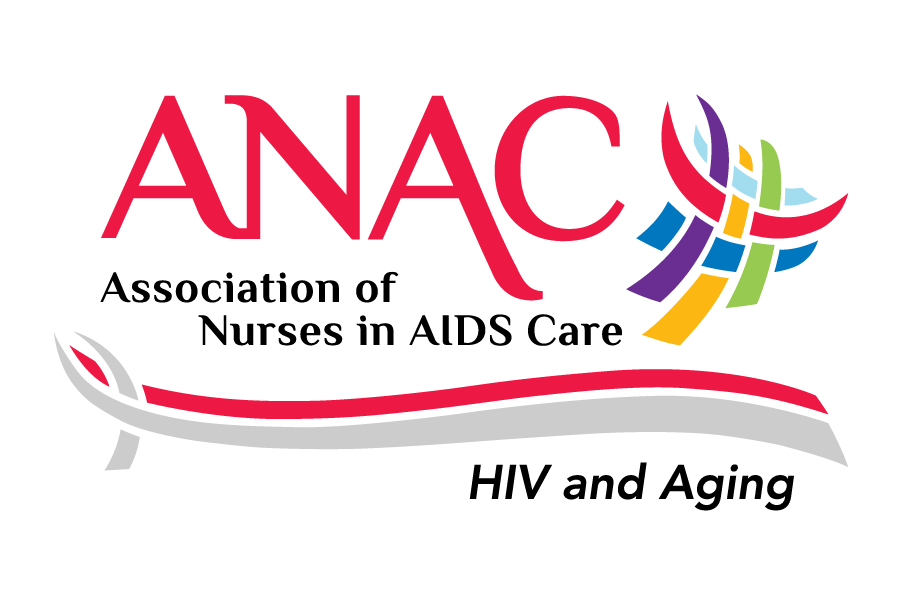tel: 800.260.6780 (toll free) • 330.670.0101 (phone) • fax: 330.670.0109 • email: anac@anacnet.org
© 2022 Association of Nurses in AIDS Care. All rights reserved.
Privacy policy/Terms of service
Staff Login

HIV has become a chronic, manageable condition. This progress means that for the first time, people living with HIV are aging and face new challenges to health and wellness. People aging with HIV are likely to face a myriad of challenges: clinical, psychosocial, financial and logistical. Aging with HIV is a complex mix of long-term treatment effects, early onset of general aging, comorbidities and other confounding factors including mental health and psycho-social factors that affect quality of life.
Currently, 50% of persons with HIV (PWH) will be over the age of 50 and by 2030, 70% of people living with HIV will be over the age of 50 and perhaps half of them will be 70 or older. For aging PWH, the emergence of multiple comorbidities may necessitate moving away from places where they have traditionally received care to new systems that focus primarily on comorbidities associated with aging such as cardiology, neurology, physical therapy and rehabilitation. In most communities and institutions, this care is delivered through an uncoordinated maze of multiple specialists who may be unfamiliar with HIV or the unique challenges experienced by PWH.
Aging persons living with HIV have experienced tremendous loss, stigma and discrimination throughout their lifetime and within the healthcare system. Without proper supports, the risk for isolation, depression and stigma will be increased. As PWH are aging and their care becoming more complex, multi-layered and with less resources, the need for compassionate and effective nurse managed care is critical.
Evidence has demonstrated that nurses and nurse practitioners are ideally situated to deliver and manage this complex care. The nursing framework is based in a holistic, strength-based patient centered approach that includes evidence-based quality care, advocacy and effective care coordination. Nurses have a long history of coordinating patient care, before the terms care coordination, case management and navigation were known.
 We have developed multi-dimensional educational modules with the overall goals of:
We have developed multi-dimensional educational modules with the overall goals of:
These free, on demand courses are eligible for nursing continuing professional development (CNE).

 This work is supported through a generous grant from Gilead Sciences as part of the HIV Aging Positively initiative.
This work is supported through a generous grant from Gilead Sciences as part of the HIV Aging Positively initiative.